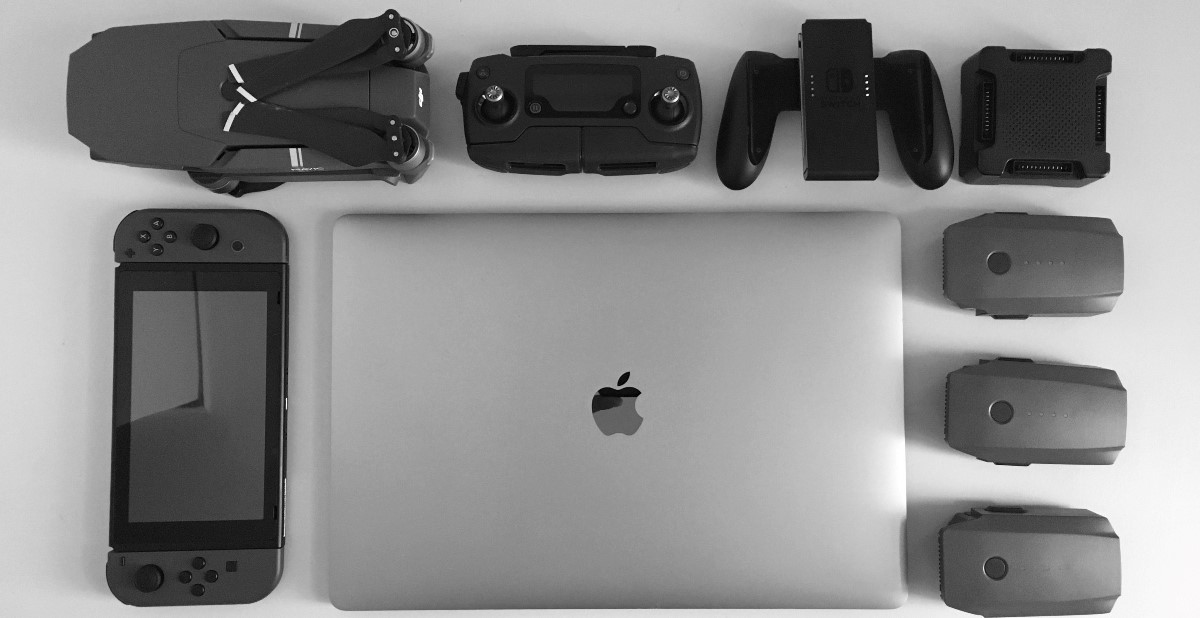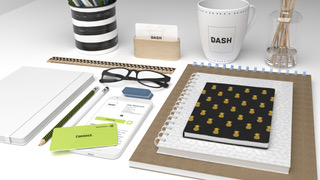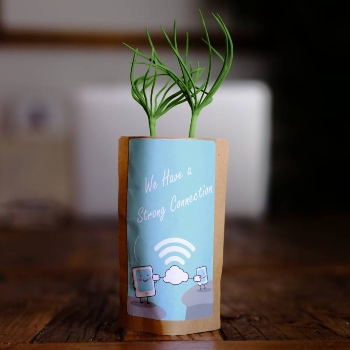Consumers Are Looking For Sustainable Technology—Promo Pros Can Help

What happens to your old phone when you get an upgrade? If you’re not trading it in to be refurbished, it’s going into the trash—along with millions of tons of e-waste.
E-waste, or electronic waste, is the world’s fastest growing domestic stream of waste. Each year, the total amount of electric and electronic equipment in the world grows by 2.5 million tons, according to a 2020 report. In just 2019, the world generated 53.6 million tons of e-waste, which is up 21% in the last five years.
Anything with power or a battery supply—like phones, laptops, watches, radios, toys—is fueling this mountain of waste. Today, consumers are buying products with shorter lifecycles and fewer repair options. Only 17% of 2019’s e-waste was formally collected and recycled.
E-waste can become a health and environmental hazard. Without e-waste management system, toxic substances contained in e-waste, such as mercury and brominated flame retardants, are more likely to be released into the environment, and harm people who live, work and play near scrapyards.
Mercury can be found in every computer monitor and fluorescent light bulb, but exposure to it can cause brain damage. It’s estimated that about 50 tons of mercury from undocumented e-waste ends up in the environment.
E-waste directly contributes to global warming, too. Old fridges and air-conditioning units can slowly leak greenhouse gases. It’s believed that about 98 million tons leak from scrapyards each year, equivalent to 0.3% of global emissions from the energy sector.
With global lockdowns in 2020, many consumers began relying on technology more for work, school, communication and entertainment. Last holiday season, tech products were the most wanted among consumers. A global survey conducted shows, if money or availability were no object, consumers most want a 5G phone (38%), robot vacuum (34%), and wireless earphones (30%).
Today, more people can afford tech products that help improve their lives. But the growing global demand is outpacing recycling capabilities. More than eight in 10 consumers have heard the term “e-waste,” but a third don’t know what it means, and 18% aren’t aware of the term.
But consumers want to learn and make educated buying decisions. Today, more consumers (72%) report actively buying more environmentally friendly products than they did five years ago. This includes choosing sustainable technology products over others.
Sustainable technology is innovation that considers natural resources while fostering economic and social development. The goal is to reduce environmental risks and create a sustainable product. Sustainability in technology can be defined in three ways: substitution, prevention and efficiency.

From LED lights to solar power, sustainable technology is already a part of our daily lives. In this industry, promo pros are already leading the way. Illinois-based business service provider Eight Legged Media unveiled a sustainable, reusable business card this year. The DASHconnect Card is designed to lower the amount of business cards that get thrown away.
Peter Moskowitz, vice president of sales at Eight Legged Media, says, “The DASHconnect Card has a ton of brandable space, it’s functional, memorable and reduces waste. It is like a magic trick watching your contact information appear on someone’s device just by tapping the card to their phone. You can tap it an unlimited number of times, so instead of needing 1,000 business cards for a tradeshow you might only need 50.”
Every year, nearly 10 billion business cards are printed, and research shows that 88% will get thrown away in less than a week. “Everyone thinks of sustainability as recycled paper, wood, metal, or plastic and those products can have an amazing impact on the environment by reusing available resources,” Moskowitz says. “However, products like the DASHconnect Card are important for the industry because they prove you can be sustainable in a different way. Using technology, we can prevent waste from ever needing to happen in the first place.”
Sustainable technology is good for business. Sustainability is a key driver of innovation and production improvement. Tennessee-based supplier ForestNation offers tree planting kits with unique codes, so recipients can name and track their tree’s growth online. For just naming their trees, recipients can plant two more trees for free.
Marketing Ambassador Swadesh Padhi says, “The tree kits are a gift that lasts a lifetime. Recipients will remember you every day they care for their trees. When gifting the tree kits, you're giving a message like, ‘Hey, let's do something good together. You plant a tree, and we'll plant trees, too.’ This is a powerful, more natural message that makes you approachable and seen positively.”

Not only are these tree planting kits eco-friendly, carbon positive and a zero-waste gift, but they also support engagement. Padhi says, “It is an interactive gift encouraging recipients to name their trees, post photos, messages and updates. They can also visit the client's online forest to see the impact they've created and other people growing trees with them.”
Combining sustainability with technology extends the power of the promotional product. “It is very important for promo products to be part of a customer's or employee's journey with the brand that gifted them the product,” Padhi says. “This can be achieved with technology. We can integrate tech to increase engagement with the brand using the promo product as the vehicle. The tree naming feature we have gets an average 15% of the recipients to further engage with the brand.”
With sustainable technology, promo businesses can use resources more efficiently, remain competitive and retain top talent. Moskowitz says, “I think we’re going to start seeing a new wave of technology based promotional products that allow the technology we carry with us all the time, our phones, to become the vehicle.”

